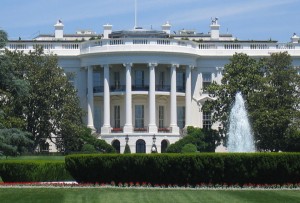 It was only 7:15 last Tuesday evening when my daughter, who works in conservative journalism, texted me to say the election was lost. For a painful four hours, I watched the results confirm her early analysis. When it was clear the president would be re-elected and Republican challenger Mitt Romney had lost, I took an over-the-counter sleep aid and went to bed.
It was only 7:15 last Tuesday evening when my daughter, who works in conservative journalism, texted me to say the election was lost. For a painful four hours, I watched the results confirm her early analysis. When it was clear the president would be re-elected and Republican challenger Mitt Romney had lost, I took an over-the-counter sleep aid and went to bed.
On Wednesday, I began a week-long home improvement bender, drowning my sorrows in a five-gallon bucket of latex paint the color of vanilla creme. But there was no painting over my pessimism about the future.
I didn’t need to watch TV or listen to talk radio to know what happened. I certainly didn’t need to read the endless analyses about ground games and turnout and demographics and the impact of Superstorm Sandy on pre-election optics.
I already knew why President Obama handily won a second term, despite all indications that a plurality of Americans simply are not confident the country is heading in the right direction, or that our president is the man to lead us toward a more prosperous economy and a more secure place in the world.
You see, more than a year ago I wrote the book that explains it all. It’s called Don’t Let the Kids Drink the Kool-Aid: Confronting the Left’s Assault on Our Families, Faith, and Freedom, and in it, I proved our young adults already have been molded to be the first generation of American socialists.
It’s not some wacko conspiracy theory. It’s just research that shows the influence of our education system, media and pop culture have instilled in most young people a lack of understanding about economics and free markets, as well as a misconception about the proper role of government in our daily lives.
Here’s some of what I learned and shared in the book:
Going back more than six years, it’s clear our nation’s college students are largely civically illiterate. According to surveys from the Intercollegiate Studies Institute, college freshmen typically flunk a 60-question civics test with an average score of just better than 51 percent; college seniors flunk it with a score of around 53 percent.
According to the National Center for Education Statistics, our country’s high schools taught less about the Constitution in 2010 than they did in 2006, a trend that continues. In fact, in 2010, only 67 percent of high school seniors studied our founding documents, meaning about a third don’t study our government in the year before they are eligible to vote.
Based on National Assessment of Education Progress tests, the formal assessment exams given to students across the nation to gauge what they’re learning, American students exhibit an alarming lack of proficiency in government and economics.
As of 2006 (the last year for which statistics were available when I researched the book), only 36 percent of high school seniors could name the government’s primary source of income. (That would be taxes, kids.) Only 33 percent could explain the effect of an increase in real interest rates on consumer borrowing, and a scant 11 percent could analyze how a change in unemployment rates affects income, spending and production.
And of course, it’s not just young adults who are civically illiterate. In 2008, the Intercollegiate Studies Institute administered a basic 33-question civic literacy test to a random sample of 2,508 American adults. Respondents had a range of educational attainment from high school diplomas to advanced degrees.
Questions came from past institute surveys, as well as from nationally recognized exams, such as the U.S. government’s citizenship test and the National Assessment of Education Progress test. Respondents also were asked questions regarding their level of engagement in other activities that may or may not contribute to civic literacy.
The average score for all Americans who took this straightforward civic literacy test was 49 percent, or an “F,” proving the apple doesn’t fall far from the civically illiterate tree.
Which brings us to last week’s presidential election. Exit polls revealed that a stunning 42 percent of voters said Mr. Obama’s response to Superstorm Sandy was “important” when making their decisions about whom to vote for in the election.
That’s about what you’d expect from a civically illiterate electorate.



